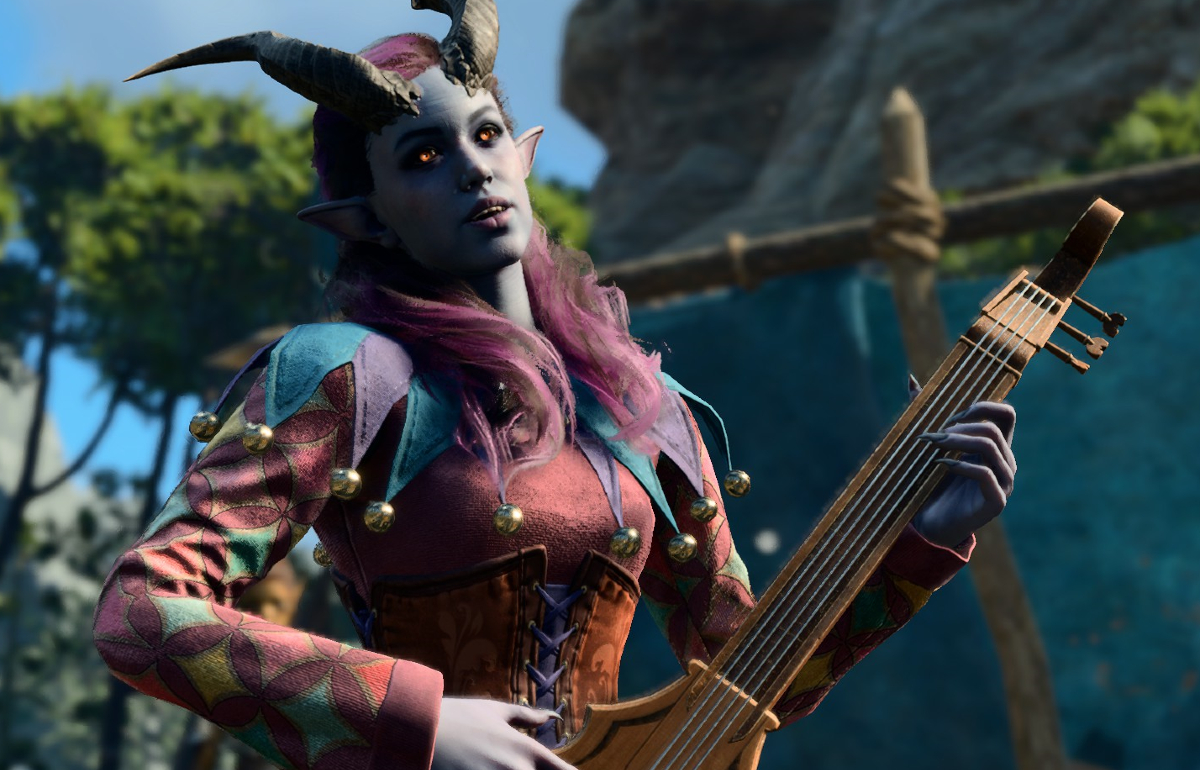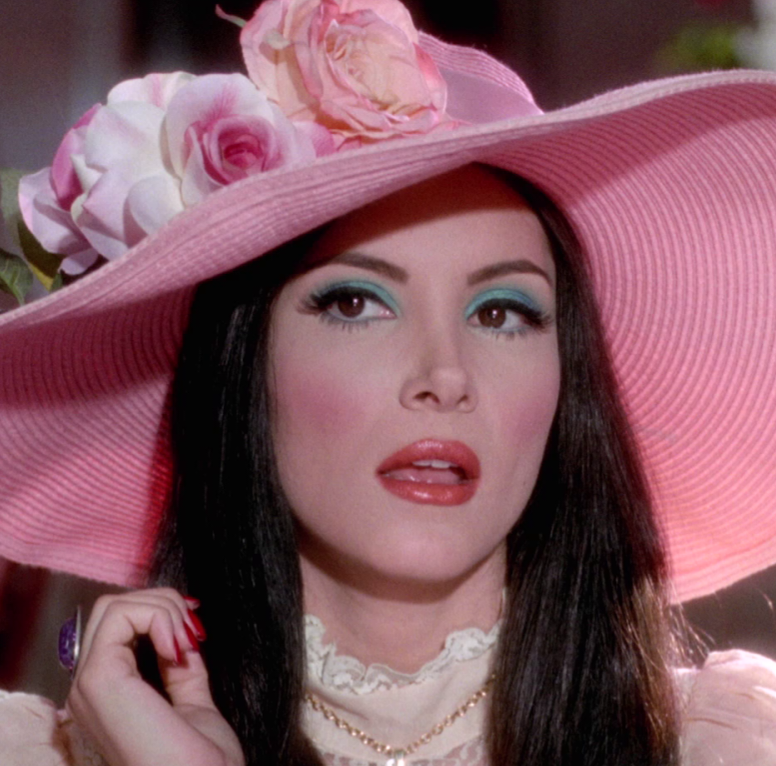‘Baldur’s Gate 3’ can be a fantastic experience and a bad game at the same time.
I really don’t want to use this comment to shame people for getting their start in game design.
But it’s really weird to me to see a semi-major internet publication like this highlight comments from a guy with a youtube channel that has 508 subscribers and who has only been a professional game designer for 2 years as head of an indie studio, according to his LinkedIn. Sure, anybody can teach game design and even teach it well. You don’t have to be the next John Carmack to do it properly, but it’s weird that this guy was highlighted for an article in this way.
Also his first game with the indie studio is some sort of indie MMORPG that’s a parody of RuneScape.
Honestly, it’s this part that really bothers me:
Take it from Cory Rodis, a professional game developer, designer, and educator with over a decade of experience in the field.
Clearly from Linkedin and Moby Games, this person does not have over a decade of experience in the field. If you count teaching as “in the field” (which to me, in the field means not teaching but actually doing.) then they have 6 years of experience. Not counting that, they have 2 years.
Also, and maybe I am out of the loop but this doesn’t seem to be a semi-major internet publication to me. This is my first time hearing of it. https://en.wikipedia.org/wiki/Dan_Abrams#The_Mary_Sue this is the only information I really found on it’s popularity and it seems kind of weak. Am I missing something, is it a really popular site for something like anime or comics?
I see the site posted a lot so I assumed it’s semi-major but I dunno it’s just an internet news site.
Anyway I agree the “in the field” part is weird. Also the fact that the author knew the “expert” that was cited and the info came from a discord post makes it seem like a bit of a puff piece.
Yeah, that was the first red flag for me too. Even if it’s true, that would mean his experience in game dev is not that much longer than the time it took to make BG3.
But even if we assume years in the industry is not a useful metric, the article makes a bunch of other assumptions. Like saying the player is “punished” by the existence of so many dead end dialogue options. I don’t consider it a punishment to not see every single dialogue option a game has. I intend to make the choices in the game that I think are my best option, and if that means I miss out on some content, so be it, that’s the experience I got.
But to flat out call the game “not good” us laughable. Particularly from someone so green in the industry.
Outlets these days are more than happy to signal boost random controversial statements for clicks. Every time I see something that says “receiving hundreds of likes on Twitter”… that’s nothing. That’s practically nothing.
Not gonna lie, this was exactly the first thing I looked up, though I changed my mind in posting because it seemed to be a bad faith article in general. But yes, if you’re going to have a person stand by their professionalism and experience, especially when making such harsh criticism over a highly rated game while demanding more media literacy, I think have someone that actual has relevant professional experience would make it far less eye-rolling to read.
I’ve played through all 3 acts. Obviously in no way have done everything, but I never ran into a situation where your character would get killed for a bad dialogue choice. The “Volo’s eye” event referenced is for sure an example of the telegraphed outcome being the opposite of what actually goes down, but I really can’t think of another time that happens. Even that choice did not end in death. Some options end in tough fights, and maybe fights above your level, but I was never surprised by them.
Bringing up save scumming is an odd criticism for a CRPG. That has been a long running discussion, but you can choose not to do it if you don’t like it. It doesn’t mean it is bad game design to include saving whenever you want.
I’ve absolutely died as a result of bad dialogue choices but that’s just role playing; sometimes something you might choose to do can only logically result in your death and I, for one, am happy to be given that choice. I’ve straight up deleted a character profile with lots of progress because there was no in-character way not to do the thing that would kill me in dialogue. That game over is just that character’s canonical ending as far as I’m concerned. He couldn’t not shit-talk that god, that god couldn’t not erase him from existence out of spite. If the game had not provided me with an option to shit-talk the god, I would have been annoyed that none of the dialogue options were true to my character.
Shit-talking the god was worth the price of admission, too.
Yeah, I saw it coming and did not regret that death. I earned it, but it was completely worth it.
lol, that sounds awesome. I did not encounter that particular dialogue option that I am aware of.
That’s so serious, jesus
I feel like in some ways that’s a limitation of the game not the RP though. Like the game is clearly stating you will not have a character that shit-talks gods. A good DM would see your RP choice and play into it rather than stomping you cold for a simple character personality. It’s equal to saying “you will never play a dumb comic relief”. Where in a lot of good RPGs the dumb comic relief is the best option. In the same way I’ve seen a lot of people want to play god-worshiping characters that lose faith in their god and switch.
a situation where your character would get killed for a bad dialogue choice.
I think this is a ridiculous thing to criticize too. Dialogue is important in a game like this and it has (sometimes lethal) consequences.
Imagine if this argument were applied to combat. It turns out that it is impossible to beat some encounters by role-playing a loner wizard who refuses to cast spells. Nobody in their right mind would actually believe that is a valid criticism.
I absolutely agree. It’d be like if in RDR2 the “rob dialogue” was criticized for enacting combat. That said I haven’t played BG3 so I can’t know exactly what they were talking about or how it feels unfair.
There’s one point where you can deliberately make out with a brain-eating monster.
There’s another where a strict and cruel god-like being demands you hand over something very important to them.
These situations honestly should lead to death if you push it.
Yeah, ultimately this article reads as if it is questioning the quality of a work on the basis of how the audience engages (or doesn’t engage) with it. Ultimately there is one case where the character dies due to a bad dialogue choice, and that response is very clearly a joke one for if you’re not roleplaying.
I dunno, it just seems as if the article is clickbait, and if this game dev would prefer playing a game 90% ludonarrative dissonance and 10% no meaningful player choice.
I think the problem with player choice is that you are often not presented with the choice that you or your character would normally want, or that the game intentionally hides the information from you that you would need to make an informed decision. Also this is subjective, but I don’t like being pranked by the dungeon master, I quit tabletop rpgs due to this reason as a kid.
And the case about the game being interactive fiction instead of a “game” game is not entirely unfounded either. Not that I would consider that a bad thing necessarily.
(edit: I wrote this 1h into Act 3. Since then I finished the game & I found Act3 the best part of the game & rather amazing on the whole…)
But ist that not part of it? Being put in situations where you don’t have all the information, where you don’t know the potential outcomes and where you can permanently fuck things up? For me at least, that was a big part of the pull in playing TRPGs and CRPGs. It is, after all, not a strategy game.
In a good rpg, having a couple of these is fine, but in my opinion in Baldur’s Gate 3 these intentionally undecipherable decisions are overabundant. I’m not saying BG3 is bad, in fact many and perhaps most things are absolutely incredible. I just feel that that presented choice options & some parts of the big plot could have been done better.
the case about the game being interactive fiction instead of a “game” game
Way to shit all of the visual novel games not being games ins a single sentence.
I have died twice due to dialog choices. Once Lae’zel killed me in camp & once I turned into a mind flayer under the Absolute, thus ending my journey.
Exactly. I literally don’t understand why people even care about save scumming (and the name is ridiculous to me too lol). It’s like my favorite part of the game. I love being able to relax and know I can mess around without completely fucking my game over. I get to explore everything to the fullest. If someone wants to be a hard ass about it, they can just…not reload?
Precisely. It is an old and tired sentiment that has never made sense. Gatekeeping at it’s finest.
I know of three instant game end dialogue options. One with Astarion, one with Volo, and one in the House of Hope. I think there might be a few more as well.
There’s also one with Mystra I think.
There’s also one in the githyanki creche. If you aren’t nice to >!Vlaakith, she casts wish on you and kills your entire party instantly!<
There’s also one at the end of act 2, if you have Gale with you.
Oh yeah, I’ve heard of that one as well!
deleted by creator
Can that one instakill you? I suppose I’ve not seen that one!
deleted by creator
That makes sense. I guess I’ve just never failed that encounter
After that combat encounter I just shoot him from a distance. Free exp!
Good to know. I did not encounter any, unless Volo’s can turn badly, and then I chose wisely
There’s one dialogue in the Githyanki creche where your entire party is instantly killed if you choose the “wrong” option. There’s nothing to indicate that the choice will lead to that outcome. I’m not aware of any other dialogues like that, however.
I mean, it’s pretty obvious from context, given who you were talking to, that sassing them was not gonna go well for you.
It was totally worth that TPK, tho.
She’s ultra authoritarian, for you to reach that dialogue option she knows you have something she desires, and she is a literal god while you are not even lvl 15, god killing is lvl 20 stuff, not 12 which is the cap, of course that she will kill you and grab what’s theirs instead of letting you go, wtf?
There’s nothing to indicate that the choice will lead to that outcome.
Who would’ve thought that saying fuck off to a literal god had consequences? Why do you think the game triggers an auto save when you enter the room? It’s safe for the game to be able to do that when it just auto saves for you right before, meaning you lose no progress. You’re ignoring a lot of context here, and it absolutely indicates this outcome lol
I read this as someone being real mad that the game is chaotic, and it’s like, that’s the best part about the game to me? There’s no ACTUAL DM, so the next best thing is what in my mind I’m calling the “death loop” system, just being able to go back and load a different save. At a game table the DM would, within reason, find a way to work with PCs being ridiculous; since it’s not possible to truly replicate that, the game just embeds chaos in the decision trees instead. That’s literally what makes it so fun. Most of the time the game is telegraphing what the real dumbass choices are, but I like how it’s not always immediately obvious. It keeps me on my toes. And sometimes I just save before choosing the stupidest option simply because I want to watch that shit play out.
I just feel like they’ve fundamentally misunderstood the point here.
Most of us over at !baldurs_gate_3@lemmy.world seem to agree that the author is either trolling or picked the wrong dump stat for an aspiring game critic.
I wrote a more detailed response over there.
This is such a absurd statement I’m inclined to agree about the trolling.
Maybe you love the characters, maybe you love the world, or maybe you love the character creator. That’s all well and good, but the fact of the matter is that all of those things—and a good many other aspects that Baldur’s Gate 3 has been praised for—are poor measurements of evaluating a game. If these subjectivities were the most important aspects of games, then we could say that chess or soccer are bad games. And I don’t think I need to explain how absurd that statement would be.
To be fair, soccer is a terrible RPG.
Depends how much you like to RP in football manager I guess.
I mean, what does he think makes a good game, if not sorry, characters, and world? Must a game only be evaluated by it’s rules and systems? Then guess what, BG3 is built on DND 5e, arguably the most successful RPG system of all time. What even is his complaint?
It sounds like his teacher thinks games should be evaluated for their development of tension and consistent messaging. It sounds like they would penalize a game for having a story with twists and surprises, because those either break messaging consistency or deflate tension. And, of course, quicksaves are evil.
I can kind of see where they’re coming from, but it feels like a very academic, navel-gazing place, akin to pretentious art critics talking about color, composition, and allusion to past masters, or a film critic talking about Dutch angles and long takes. Things that may contribute to the artistic quality and even the enjoyment of a piece, but are not components that us rubes actively look for. The fact they try to lump BG3, soccer, and chess all together under one system of evaluation tells me that they’re going to use some really bizarre criteria.
I agree with them that it isn’t an objective measure of quality, but who rates any form of art or entertainment by objective measures only? The whole point of them is to be subjective.
Gaming media has a difficult time differentiating their thoughts on games as a consumer product and games as art. For the former, it’s useful to have objective measures. For the latter, subjective.
But what is an objective measure for game quality? You’ll often see things used like total hours needed to complete it and things, but those are not measures of quality. Enjoyment per hour should be, but then it’s back to subjective. There isn’t an objective measure for a game being good. You can look at things like framerate and such, but it still doesn’t measure quality you can make your game very simplistic and get high FPS, and graphical quality is mostly subjective.
Viewing games outside of their context as a product for entertainment, which is inharently subjective, is always flawed.
Those are in fact all objective measures of a game’s quality. FPS on certain hardware, game length, frequency of crashes, the presence of microstuttering, lists of features, these are all things that can be quantified, and by being quantified they are made objective. You can take this information and compare games against each other to make purchasing decisions, critique them, etc. Those decisions are subjective, yet they are based on objective data.
But I didn’t say that we should only use objective measures to evaluate games, nor do I agree that we can only evaluate games subjectively. We need both, gaming media should give us both, but we both need to be able to distinguish between them.
Yes, those are objective, but if we run a PS2 game in modern hardware it’ll have high FPS. What does that mean for quality?
There are objective measured, but they’re useless without context that requires subjectivity. Do you like retro-asthetics? You may like the PS2 looking game with high FPS. If you don’t then you might not.
Bugs existing I guess is a useful objective-ish measure. It depends on what happens, how often, and when though, not just the number of them or them existing.
I agree we need media looking at both, but purely objective reporting should not be giving a game a rating on overall quality.
(I’m nit arguing with you. I’m pretty much agreeing. I just wanted to clarify what I meant.)
Even as a consumer product it’s not really possible to boil it down to objective measures. Just like clothing follows tastes and fashions that are inherently subjective, or books, movies and TV shows etc.
What even is his complaint?
That he doesn’t a fraction of the talent required to make a game this good.
I can feel the saliva-moistened Cheeto crumbs being sprayed into my face.
“As soon as I saw what my instructor had to say”…
Uh… Huh… okay then. The writer might be a little close to this piece.
If those are the most fatal flaws… well I guess it’s pretty much perfect then?
Most games should be so lucky.
This is one of the worst articles I’ve ever read lol. Not to mention these are all just variations of “I didn’t like the writing”.
But, as a game design student and hobbyist (…)
That’s their credentials? Oh no…
deleted by creator
Whether you agree with the critique or not objectively the writing of this piece is godawful.
This is an interesting piece. It reminds me of the quote “The reason reality is often stranger than fiction is that fiction has to make sense or it wouldn’t be considered realistic.”
The designer’s concern that the game doesn’t consistently give you all the information to inform consistent expectations from the game world is more of a stylistic decision than an objective flaw I think. One of the core appeals of dnd is that it’s impossible to always know what to expect even down to random dice rolls. The game part is very important in dnd, but the roleplaying and emergent narrative are also very important.
If the player is taking it seriously and not save scumming, they are probably not going to have a perfect run and that’s by design. What they will have is a relatively unique game experience with its own mix of successes, failures, and discoveries. If they want to be a murderhobo or munchkin they can and since it’s one-player no one is going to mind. The game can flex into a tactical rpg or a relatively pure story experience as dnd can, but is not going to be the same experience as a chess game or a novel.
Hmm… I think we’re dogging on the author a bit much here. Don’t get me wrong, they’re clearly swimming in philosophical water that’s a bit too deep for themselves, but sometimes you’ve gotta be clumsy in order to explore topics at the edge of theory.
Let’s dial things up a notch and bring Undertale (the Dark Souls of – nevermind) into the discussion. What does it have to say about branching pathways, tonal consistency, and savescum? It says: I was made for you, please enjoy me.
The game adapts to the audience – you, that is. You are weird and hard to please, so the game needs to be flexible without feeling compromised. If you want to leave hidden depths unexplored, the game abides. If you want to vivisect every last detail, the game changes to fit your desire.
It’s alchemy, of course; both magical and unobtainable, so the author isn’t strictly wrong to accuse Baldur’s Gate of falling short. It’s true: sometimes a gap in the curtains opens up and the illusion is spoilt. With that being said, I think what’s missing is the logical conclusion to the criticism: universality – despite being unobtainable – is still worth striving for. To be universal is to distill humanity itself, as great and terrible and impossible as that may be (and here you thought I was joking with that Dark Souls jab!).
I’m trying to get a refund from GOG, after spending nearly a month truly working my most to love the game, to understand what makes people say Baldur’s Gate 3 is a masterpiece.
People said Read Dead Redemption 2 was a masterpiece, and I found myself in agreement. Same with Half-life 1, 2 and 3 (Alyx).
But the almost overwhelming attention to every detail and aspect of those games I cannot see in BG3. Everything from janky animations, buggy combat pathing, awful tutorials, visual glitches, the worst journal I’ve seen since Morrowind, and no pause button in 2023!!
Ironically, nothing of which this article brings up since it seems to shit on save scumming which I don’t care about, all power to the player.
You cannot argue this game is ‘bad’; the story and characters along with competently designed game play would prove that. But it’s no masterpiece to me, and I feel I fell for the the overhype from the fans who just love the franchise.
I understand that this game isn’t for everyone, especially people who want a pause button in a turn-based game.
Most of the time, it’s not even turn based. You run around in real time, or did you forget that?
I’ve missed dialoge since I can not pause a conversation in a single player game ffs.
You can hit the big round turn-based button in bottom right of your HUD to activate turn mode at any time, even outside combat. This effectively pauses the game. The game even makes a sound effect of a clock slowing down and stopping.
I’m aware, but no, it’s not a pause since it can not be used to pause the game, for example, when in dialogue.
The fact that you didn’t find it fun is totally valid. BG3 is a very opinionated game that gets a huge number of things right for its target audience - the people who really enjoy CRPGs, branching paths, and choice driven gameplay. It does sound like that you’re really not into those things, so BG3 could never have been an excellent experience.
The games that you list are designed to be mostly linear experiences, so it was possible for the devs to make the core gameplay shine because they had time to really polish those systems and interactions. There was enough people and time to really tune RDR2’s gunplay, the horse riding, the hunting and tracking, and make the world feel organic.
BG3’s dev time was spent on tuning the combat encounters, tuning the class building options, and making sure the world (almost) always made sense. While baking in hundreds of stories about your companions, side characters, abusive store owners, and lost puppies. The game never holds your hand, only asks “here you are, this is what you’ve done, what do you do now?”. The amount of effort put into respecting the moment to moment choices made by the player is staggering.
The complexity in these systems in BG3 left preeetty clear issues with things that would otherwise have time to be polished out of a game before release (animation jank, visual bugs, pathing, pausing). For me, they were more like bumps in a very scenic road. But I hear you when you come in expecting a shiny polished RPG but there’s all these fourth wall breaking bits that kind of stall the whole show every like 5 minutes.
I think there’s enough nuance here to have both sides of the coin be true - it’s an absolute masterpiece for the players who enjoy the specific experience it offers, and it only makes sense to feel it’s overrated when you’re coming in expecting a cinematic or visceral experience.
I would consider The Witcher 3 a masterpiece as well, far from a linear experience. And I love Fallout, so I know what a good turn based compat rpg is like. And few games have had me so on the edge of my seat as Xcom 2, so I know what an excellent turn based combat system is supposed to be.
BG3 just doesn’t live up to that. The polish fails it, and the combat is just not very fun. The role playing is excellent as long as the other things don’t get in the way, which it does.
As someone who hasn’t yet played it but will, and wants to like it, should I read this? Will it point out negative things I might agree with but would never have noticed otherwise?
It’s not that deep. Here’s the two main critiques leveled towards the game in the article.
- you don’t always know the consequences of your actions, and they’re not always predictable: a seemingly sensible choice sometimes ends badly, and a seemingly dumb choice could get you a reward
- you can load a save and redo your things whenever you want, i.e. save-scum
These are both somewhat obvious just from the structure of the game. Ultimately the conclusion the author is shooting for is that this makes Baldur’s Gate 3 a bad game but a good piece of interactive fiction.
The author uses the mechanics of chess often as sort of an example of the pinnacle of game design which to me is telling. Video Games are much broader than that. Insisting that people should not call the thing you don’t like a game but instead “interactive fiction” is pedantry at best, and gatekeeping at worst.
Sure, if you view the game through the lens of chess you will come away with these flaws. But for example, if you always knew the consequences of every choice the narrative tension would be destroyed. Of course chess has no such concern, so if we’re looking at games through that lens then narrative tension is of no value. Ultimately I think this is just a very narrow viewpoint of what games should be.


















